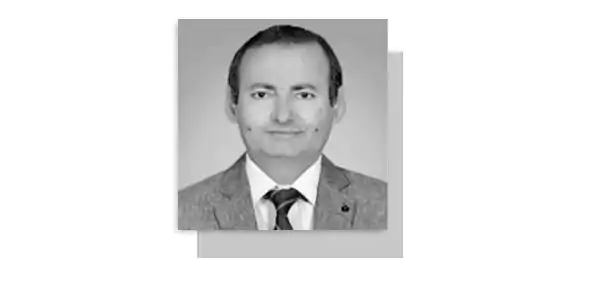POLIO, once a global scourge, has persisted in the shadows of Pakistan and Afghanistan, posing a significant challenge to global health initiatives. Despite the global commitment to eradicate polio by the year 2000, these two nations remain the last battlegrounds, grappling with the stubborn persistence of this crippling virus. In 2023, both Pakistan and Afghanistan reported six active cases each, raising serious concerns about the efficacy of eradication campaigns. This situation demands a comprehensive examination of the strategies in play, public awareness initiatives, and the government’s role in Pakistan’s relentless struggle to eliminate polio.
Pakistan, boasting nuclear capabilities and substantial resources, faces the perplexing paradox of an inability to eradicate polio. In contrast, Afghanistan, amid four decades of political instability, has managed to sustain efforts against the virus, albeit not without challenges. This stark comparison prompts a critical reassessment of Pakistan’s approach to this public health crisis.
At the forefront of Pakistan’s renewed efforts is a national campaign set to kick off in the first week of 2024. This ambitious initiative aims to target a staggering 44 million children under the age of five. The success of this campaign hinges on a multifaceted strategy that encompasses both government-led interventions and grassroots public awareness.
Government-led strategies are pivotal in the fight against polio. Pakistan must prioritize the strengthening of its healthcare infrastructure, ensuring the effective distribution of vaccines, and fortifying surveillance systems to promptly detect and respond to new cases. Allocating substantial financial resources, mobilizing a skilled healthcare workforce, and fostering cross-sector collaborations are essential steps in bolstering the government’s role in eradicating polio.
One of the critical aspects is the need for sustained political commitment. The government must prioritize polio eradication on the national agenda, ensuring that resources are consistently allocated and that the issue remains a top priority. Strengthening the routine immunization program is equally crucial; a robust routine immunization infrastructure acts as a foundation for any successful polio eradication effort.
Vaccine accessibility and distribution logistics are areas that demand immediate attention. The government must ensure that vaccines reach even the most remote areas, leaving no child vulnerable to this preventable disease. This involves investing in cold chain infrastructure to maintain the integrity of the vaccines and employing innovative distribution strategies tailored to the diverse geography of the country.
Surveillance is the linchpin of any effective polio eradication program. The government must invest in cutting-edge surveillance technologies and ensure that there’s a robust reporting mechanism in place. Rapid detection and response to any new polio cases are imperative to prevent outbreaks and maintain momentum in the eradication efforts.
Public awareness plays a pivotal role in garnering support and participation in vaccination campaigns. The government must intensify efforts to educate communities about the critical importance of vaccination, dispelling myths and misconceptions that hinder immunization drives.
Addressing vaccine hesitancy is a significant challenge. Misinformation, cultural beliefs, and lack of awareness contribute to resistance in some communities. The government must tailor its communication strategies to different cultural contexts, engaging with local leaders, religious figures, and influencers to convey the importance of vaccination.
Leveraging various communication channels is vital. Social media, television, and community outreach programs can contribute to a more informed public. Tailored messaging, delivered through trusted channels, helps in building confidence in the safety and efficacy of vaccines.
However, the path to polio eradication in Pakistan is fraught with challenges. Overcoming resistance to vaccinations in some communities is a persistent hurdle. Cultural beliefs, fueled by misinformation, have led to skepticism about the safety and efficacy of vaccines. Tackling this requires targeted communication campaigns, engaging with community leaders, and involving local influencers to dispel myths and build trust in vaccination.
Logistical challenges pose another formidable obstacle. In remote and inaccessible regions, delivering vaccines in a timely manner is a complex task. The government must employ innovative solutions, such as mobile vaccination units and community health workers, to reach every child, regardless of their geographical location.
Political complexities further complicate the landscape. In a country with diverse political landscapes, coordination between federal and provincial governments is crucial. The government must ensure a harmonized approach, where policies are implemented consistently across all regions, leaving no room for gaps that the poliovirus could exploit.
International cooperation and support are indispensable in addressing these multifaceted challenges. Collaborative efforts with global health organizations, neighboring countries, and international donors can provide the necessary resources, expertise, and diplomatic support to fortify Pakistan’s endeavors in eradicating polio.
In conclusion, Pakistan stands at a pivotal juncture in its battle against polio. The upcoming national campaign symbolizes renewed efforts to confront this persistent public health challenge. The success of this endeavor depends on the effective implementation of government-led strategies, coupled with comprehensive public awareness initiatives.
As the world watches, Pakistan has the opportunity to redefine its narrative and emerge victorious in the quest to make the globe polio-free. By strengthening government commitment, addressing vaccine accessibility, intensifying public awareness, and navigating the complexities with resilience, Pakistan can contribute significantly to the global goal of a polio-free world.
This concerted effort not only safeguards the health and future of millions of Pakistani children but also reaffirms the nation’s commitment to global public health. The journey to polio eradication is challenging, but with unwavering determination and collaborative action, Pakistan can turn the tide and inspire the world in its battle against this ancient foe.
—Email:[email protected]










